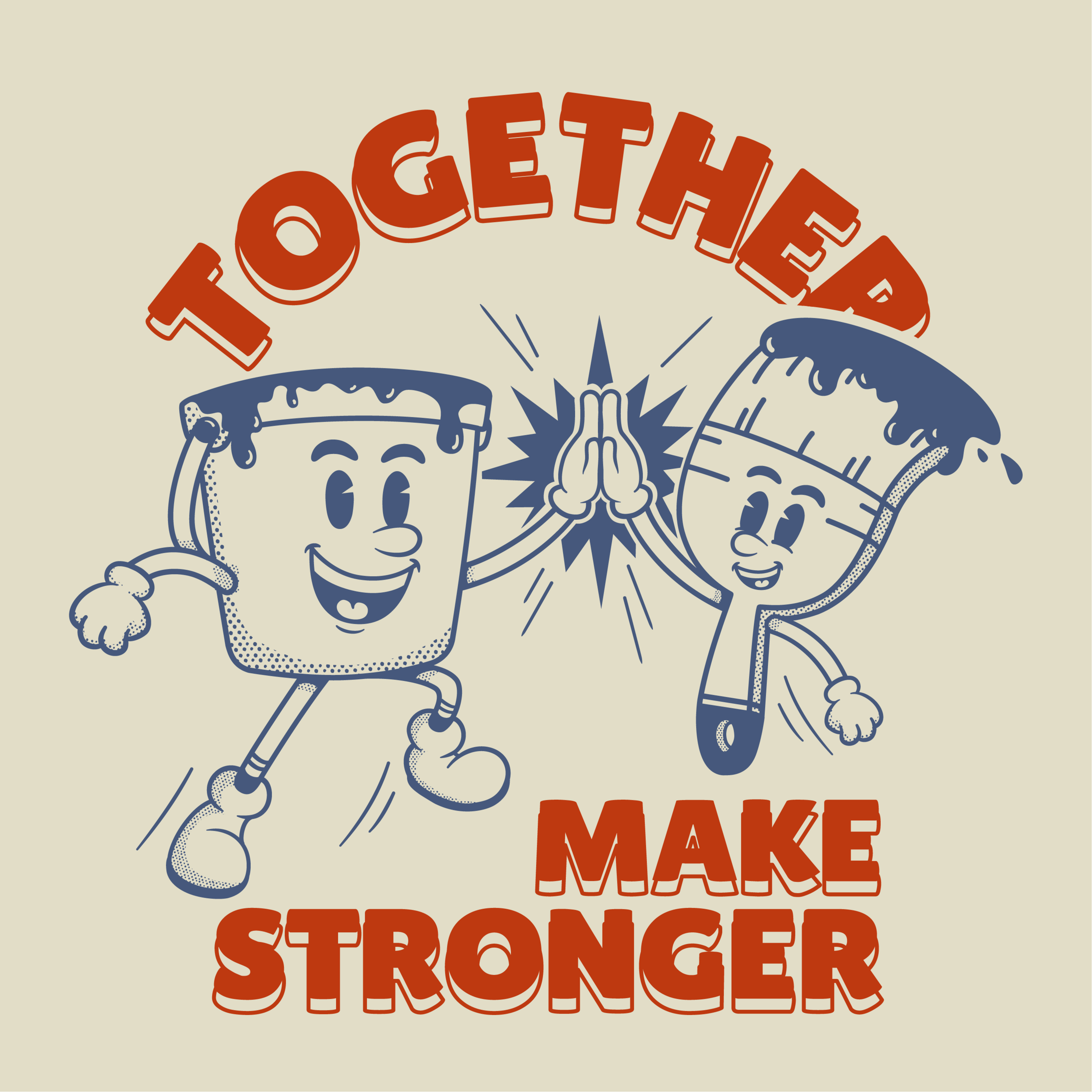
Ever seen an ad on social media that made you wonder, “What on earth was that company thinking?” Or read an email from a charity that made you tear up—and make a donation—in the blink of an eye?
Almost every human on earth is bombarded with thousands of messages per day. Only a few get remembered. There’s an art, and a bit of science, to making yours stick.
A Better Way to Say That explores why some messages work and others don’t. Once a month we’ll dissect the trends, technologies, and Weird Tricks that shape how people are communicating with each other in 2024—and what that means for your organization.

The number of journalists in the US has shrunk by 75 percent since the turn of the century, so there are fewer people to pitch with your Exciting New Story. And the ones who remain are under increasing pressure to write about topics that are already proven—or at least believed by bosses—to produce revenue-generating traffic.
Even this kind of coverage is getting narrower. You’ve probably seen dozens, if not hundreds, of articles about AI this week—but the attention is tightly focused on a handful of companies like OpenAI and Nvidia, not the thousands of startups also working in the industry.
So what’s a press-hungry small or medium organization to do?
A giant company like OpenAI can generate an entire news cycle by releasing a shitty short form video app, simply because OpenAI is the one who released it. Meanwhile, a small tech company that found a viable way to drastically reduce AI’s energy consumption may find its pitches going unanswered due to lack of name recognition.
This is frustrating and unfair. It’s also not something that can be fixed with a cleverer pitch letter. Journalists know that a headline with “OpenAI” equals clicks, and if they want to keep their jobs, they need to keep people clicking.
So if you’re the small tech company, what do you do?
Instead of cursing the injustice of the attention economy (or perhaps in addition to cursing it), you need to find a way to connect your story to the one already being told. And in most cases, you need to be comfortable with playing the role of expert commentator, rather than being the star of the show.
To illustrate: “Small Tech Company Invents Energy-Saving Technology” is unlikely to persuade a journalist they should invest their time and energy in writing about your company. There are simply too many similar claims being made by too many similarly unknown actors (that may or may not be trustworthy).
A pitch along the lines of “OpenAI’s New App Is an Energy Hog” is a much more attractive proposition because:
If you’re a leader of Small Tech Company, the second pitch will likely be less flattering to your ego. But it’s also more likely to earn the media hit you desire.
Because the last word is rarely the end of the conversation.
Much like penguins, we enjoy bringing you little gifts to show we care:
The World Cube Organization is hiring an Executive Officer (fully remote, $80k-120k per year, lots of benefits), and even if you’re not looking for a new job we highly recommend reading the company description.
Think you can guess who a person voted for based on their demographic info and professed beliefs? Take the survey and prepare to be dumbfounded!
The Guardian’s Comedy Wildlife Awards 2025 do not disappoint, unless you’re philosophically opposed to waterskiing loons.
Here’s what one of us is currently reading:
“The quickest way to a man's heart is through the fourth and fifth ribs.”

People cannot live on thousand-page history tomes alone. We love them, but as the holidays close in and my “books I read this year” number looks more and more pathetic, I want to give a shout-out to another important genre:
The “fantasy romance,” or as my friends call it, fairy smut.
Specifically, I’ll direct you to the wildly popular A Court of Thorns and Roses series, or ACOTAR as it’s known on the internet. These five books check every box (magical powers…strange beasts…hot brooding guy…wait he’s also a bat? okay…plucky heroine…improbable names…historically chaotic setting…) The plot is impeccable, the modern-day lessons are pure, and there’s one book for each of the five “work days” between Christmas and New Years.
Consider this permission from your unboss to throw propriety and caution to the wind this season, and get really obsessed with some slutty fairies.

If the 2010s were an era of diversity in media, the 2020s are one of consolidation. This presents obvious challenges when trying to get small or medium organizations mentioned in the news. Success depends on riding the waves that already exist, instead of trying to make new ones.
Press releases sometimes feel like relics from a simpler, more innocent time. Much like fax machines, most people are aware they continue to exist. What’s less clear: who actually uses these things in 2025? And for what purpose?

The ability to not sound like you were just lobotomized by a team of nonprofit execs with MBAs has become a way to stand out. It's “riskier” in a sense, because it’s easier for people to tell what you’re actually saying—and potentially criticize it. On the other hand, nobody’s listening to the jargon jockeys anymore.

When we founded this agency last year, we had a pretty straightforward idea of how we’d run our business: do good work with our own hands, communicate honestly, and treat people fairly. We thought this would be the simplest path to earn a decent living and contribute something to human society. After a year of this experiment, here’s what we’ve found...

Working with people you think are interesting is good for your own personal and career growth. If their ideas are good enough to work on for free, someone will eventually pay them for that, and you’ll have forged a professional relationship—or better, a friendship—with someone smart.

There’s nothing wrong with media outlets exploring new revenue streams, and newsrooms are always fluctuating in size. But outlets can only hollow out their core product so much before it collapses entirely, and a growing number of media organizations seem to be reaching that point now. Live events are not going to save them.
Comms agencies that are good at their work tend to be curious and resourceful. We can’t pretend to be ignorant about the people and products we’re telling the public to trust. In all but the rarest cases, the agency knows what it wants to know. Business is never as pure or idealistic as we might want it to be. It does have ethical boundaries, though, and these are especially important at inflection points like the one we’re in now.
We humans like to explore for exploring’s sake. We’re pleased when we find an unexpected beautiful thing, and we feel a sense of satisfaction when we “discover” something that’s not immediately obvious to the casual observer. People want to spend time in environments where these opportunities are available—which is something to consider when building (or updating) your website.
Nonprofits shouldn't have to beg for funding to provide vital services. But with federal funding suddenly scarce—and thousands of organizations scrambling to attract attention from the big donors that remain—a new kind of comms strategy is needed.

The platform doesn't drive traffic to your site. The ads don't convert. And these days most of the "engagement" comes from spam bots or virulent bigots. It's time to move on from Twitter—but to where?
Everybody loves talking about the importance of "storytelling" for building your organization's name recognition. And it really can work—but it requires more planning and effort than firing off the occasional blog post or Instagram post.

If your nonprofit or small business has a clear message to share about a concrete goal it wants to achieve, video can do that better than any other medium—if it's done right.

Today, even a glowing review in the New York Times doesn't move the needle that much. Getting people's attention takes a more creative approach. And it all hinges around owning the means of (content) production.

In the inaugural issue of A Better Way to Say That, we explore important questions like why does this newsletter exist? and why does PSE exist, for that matter? We also share a roundup of exciting new book launches, events, and job postings—along with perhaps the most effective fundraising email ever written. As far as business-y newsletters go, it's a fun read!

